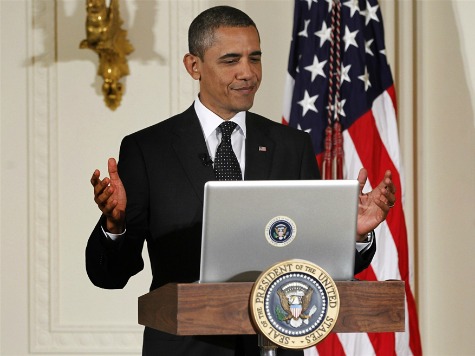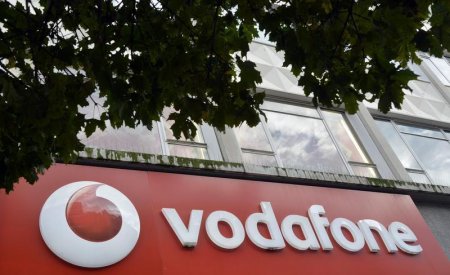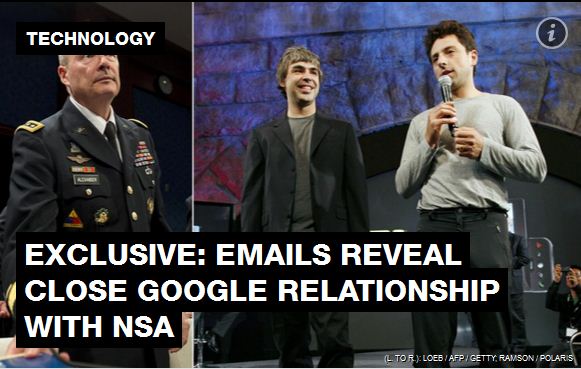In the wake of the Sony email hacking case, business expert Rachel Bridge looks at cybercrime and how you can protect your business. Online cybercrime is not just the stuff of sci-fi movies and urban myth. It is very real and it can pose a huge threat to your business. What’s more, contrary to what many people think, cybercrime is just as likely to affect small firms as large ones. Indeed, a survey by the Federation of Small Businesses (FSB) found that over a 12-month period, 41 per cent of…
Read MoreTag: privacy
White House: President Obama Announces New Cybersecurity Legislative Proposal and Other Cybersecurity Efforts
Obama unveils cybersecurity proposals: ‘Cyber threats are urgent and growing danger’ Proposed legislation will allow companies to share information with government agencies including NSA, with which White House admitted there were ‘overlapping issues’ “In this interconnected, digital world, there are going to be opportunities for hackers to engage in cyber assaults both in the private sector and the public sector. Now, our first order of business is making sure that we do everything to harden sites and prevent those kinds of attacks from taking place…But even as we get better,…
Read MoreApple vs. Google: New privacy battle looms
A new battle is brewing over privacy for mobile devices, after moves by Google and Apple to toughen the encryption of their mobile devices sparked complaints from law enforcement Washington (AFP) – A new battle is brewing over privacy for mobile devices, after moves by Google and Apple to toughen the encryption of their mobile devices sparked complaints from law enforcement. The issue is part of a long-running debate over whether tech gadgets should have privacy-protecting encryption which makes it difficult for law enforcement to access in time-sensitive investigations. FBI…
Read MoreVodafone admits some governments have a direct link to their network for snooping
LONDON (Reuters) – Vodafone, the world’s second-biggest mobile phone company, said government agencies in a small number of countries in which it operates have direct access to its network, enabling them to listen in to calls. Security agencies across the world, and in particular in the United States and Britain, have faced greater scrutiny since Edward Snowden, a former contractor with the U.S. National Security Agency (NSA), disclosed the extent of their surveillance to newspapers. Snowden’s disclosures caused an international uproar, showing that U.S. and British agencies’ monitoring programs took…
Read MorePrivacy under attack: the NSA files revealed new threats to democracy
In the third chapter of his History of the Decline and Fall of the Roman Empire, Edward Gibbon gave two reasons why the slavery into which the Romans had tumbled under Augustus and his successors left them more wretched than any previous human slavery. In the first place, Gibbon said, the Romans had carried with them into slavery the culture of a free people: their language and their conception of themselves as human beings presupposed freedom. And thus, says Gibbon, for a long time the Romans preserved the sentiments –…
Read MoreEmail exchanges between NSA and Google executives reveal far cozier relationship
Email exchanges between National Security Agency Director Gen. Keith Alexander and Google executives Sergey Brin and Eric Schmidt suggest a far cozier working relationship between some tech firms and the U.S. government than was implied by Silicon Valley brass after last year’s revelations about NSA spying. Disclosures by former NSA contractor Edward Snowden about the agency’s vast capability for spying on Americans’ electronic communications prompted a number of tech executives whose firms cooperated with the government to insist they had done so only when compelled by a court of law.…
Read MoreBig Data: Five things Big Data Experts warned Obama about
The rise of big data techniques poses risks to society that call for new laws, a White House report concludes When President Obama spoke in January about reforming U.S. surveillance, he also asked a panel of experts to spend 90 days investigating the potential consequences of the use of technology that falls under the umbrella term “big data.” The 68-page report was published today and repeatedly emphasizes that big data techniques can advance the U.S. economy, government, and public life. But it also spends a lot of time warning of…
Read MoreAd group blasts cookie-privacy project from Mozilla, Stanford
Interactive Advertising Bureau CEO Randall Rothenberg calls the effort to determine which cookies should be blocked or allowed a “Kangaroo Cookie Court” that will hurt small Internet publishers. The Center for Internet and Society at Stanford Law School is working with Mozilla on a project called the Cookie Clearinghouse to try to improve Internet privacy controls. The Interactive Advertising Bureau, a group that represents hundreds of Internet advertisers, has attacked Mozilla’s involvement in a Stanford Law School privacy project to judge whether individual Web sites can be trusted to set…
Read MoreU.S. gives big, secret push to Internet surveillance
Senior Obama administration officials have secretly authorized the interception of communications carried on portions of networks operated by AT&T and other Internet service providers, a practice that might otherwise be illegal under federal wiretapping laws. The secret legal authorization from the Justice Department originally applied to a cybersecurity pilot project in which the military monitored defense contractors’ Internet links. Since then, however, the program has been expanded by President Obama to cover all critical infrastructure sectors including energy, healthcare, and finance starting June 12. “The Justice Department is helping private…
Read More







